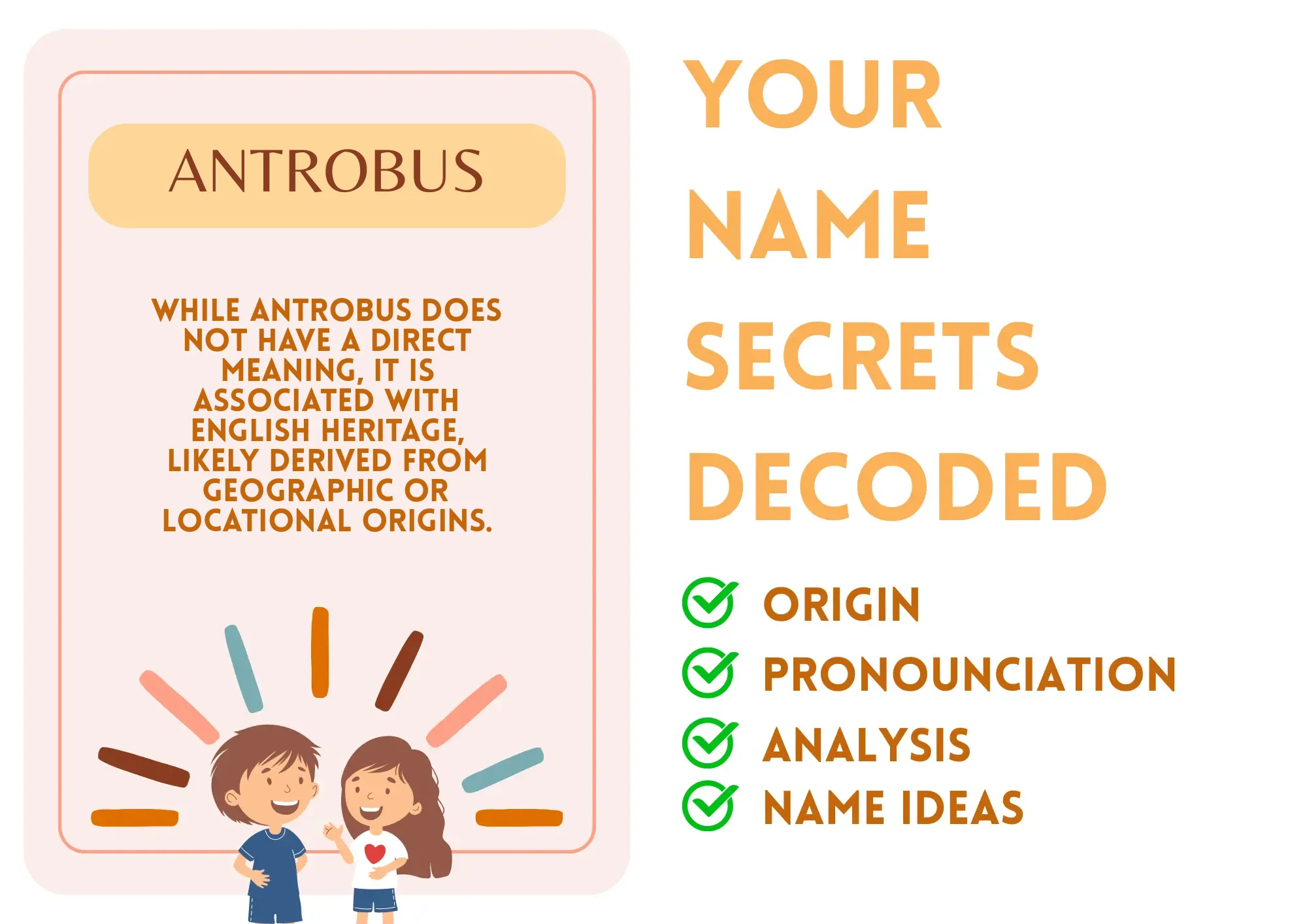
Antrobus
Antrobus is a name that carries a sense of uniqueness and historical depth. Originating as an English surname, it is now occasionally used as a given name, often appreciated for its rarity and antique charm. While it doesn't have a fixed meaning, it is tied to an English heritage and geography, originating from places in Cheshire and the north of England. Antrobus is most commonly recognized as a surname but has gained attention in certain literary references and familial associations. The name can be unisex, though typically associated with males. It conjures a sense of tradition and classicism, making it an intriguing choice for parents seeking a distinctive name with historical roots.
Basic Information
Gender: Unisex
Sounds Like: AN-troh-bus
Pronunciation Explanation: The emphasis is on the first syllable 'AN', followed by 'troh' sounding like 'throw', with a soft 'bus' as in 'bus'.
Summary and Meaning
Meaning: While Antrobus does not have a direct meaning, it is associated with English heritage, likely derived from geographic or locational origins.
Origin: Antrobus originates from England, specifically related to geographic regions such as Cheshire, indicating locational ancestry.
Usage: Antrobus can be used for both males and females, though it is more traditionally associated with males when used as a given name.
Name Number (Chaldean)
Name Number (Pythagorean)
Popularity (Global Rank)
Overall: 1013025
Boys: 72681
Girls:
Most Popular in
Religious and Cultural Significance
Religion: Not specifically associated with any religion.
Background: Antrobus is rooted in English culture and primarily serves as a testament to familial or geographic lineage rather than religious significance.
Cultural Significance: Culturally, the name reflects English historical and geographic significance, being tied to locations and former social structures in England.
Historical Significance: Historically, Antrobus is known as a surname that likely originated to identify individuals from the village of Antrobus in Cheshire, England. It denotes lineage and heritage rather than an individual historical figure.
Popular Culture
Literature and Mythology: Antrobus appears in Thornton Wilder's play 'The Skin of Our Teeth' as a notable character, symbolizing the endurance and resilience of humanity.
Movies and Television: Less common in films and television, but might be used for characters aimed at depicting classic English familial roots.
Feelings and Perceptions
Perception: Antrobus is perceived as a unique and rare name choice, evoking a sense of historical connection and exclusivity.
Positive Feelings: Unique, historical, English, charmingly antique, scholarly.
Negative Feelings: Potentially unfamiliar or difficult to spell for some.
Practical Considerations
Ease of Writing and Calling: Antrobus is moderately easy to write but may be unfamiliar to pronounce correctly for those not accustomed to English surname-derived names.
Common Typos and Misspellings: Anthrobus,Antrubus,Antrobuss
Common Nicknames: Ant,Tony,Bus
Antrobus Popularity
Antrobus Usage and Popularity By Country
| Country | Rank (Overall) |
|---|---|
| Australia | 105589 |
| United Kingdom | 182431 |
| United States | 539518 |
Antrobus Usage and Popularity By City
| City | Rank (Overall) |
|---|
Compatibility Analysis
Famous Persons Named Antrobus
No results found for Antrobus.
Related Names
Similar Sounding Names:
Ambrose,Atticus,Andreas